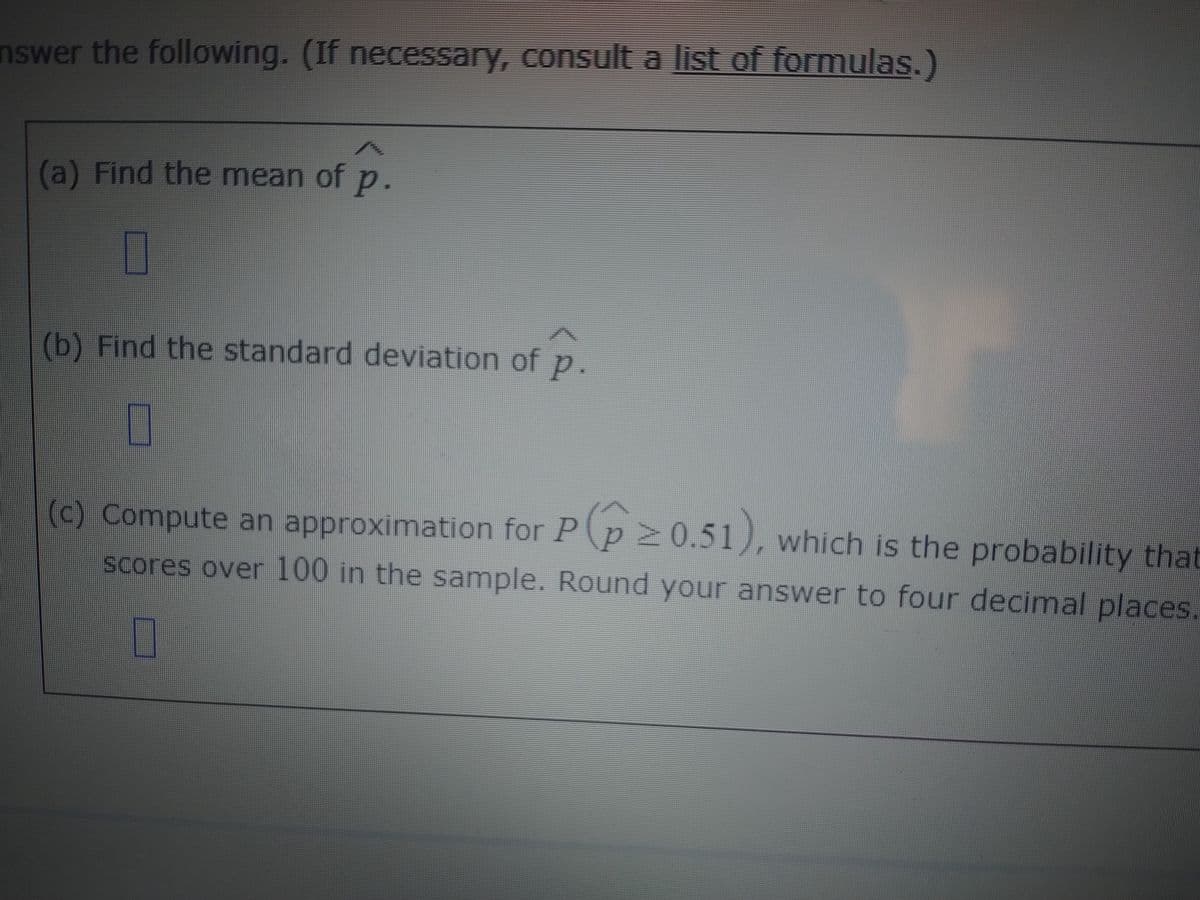A researcher believes that 51% of people who grew up as the only child have an IQ score over 100. However, unknown to the researcher, this figure is actually 50%, which is the same as in the general population. To attempt to find evidence for the claim, the researcher is going to take a random sample of 400 people who grew up as the only child. Let p be the proportion of people in the sample with an IQ score above 100. Answer the following. (If necessary, consult a list of formulas.) (c)Compute an approximation for , which is the probability that there will be 51% or more people with IQ scores over 100 in the sample. Round your answer to four decimal places.
A researcher believes that 51% of people who grew up as the only child have an IQ score over 100. However, unknown to the researcher, this figure is actually 50%, which is the same as in the general population. To attempt to find evidence for the claim, the researcher is going to take a random sample of 400 people who grew up as the only child. Let p be the proportion of people in the sample with an IQ score above 100.
Answer the following. (If necessary, consult a list of formulas.)
(c)Compute an approximation for , which is the probability that there will be 51% or more people with IQ scores over 100 in the sample. Round your answer to four decimal places.

Trending now
This is a popular solution!
Step by step
Solved in 4 steps with 3 images


